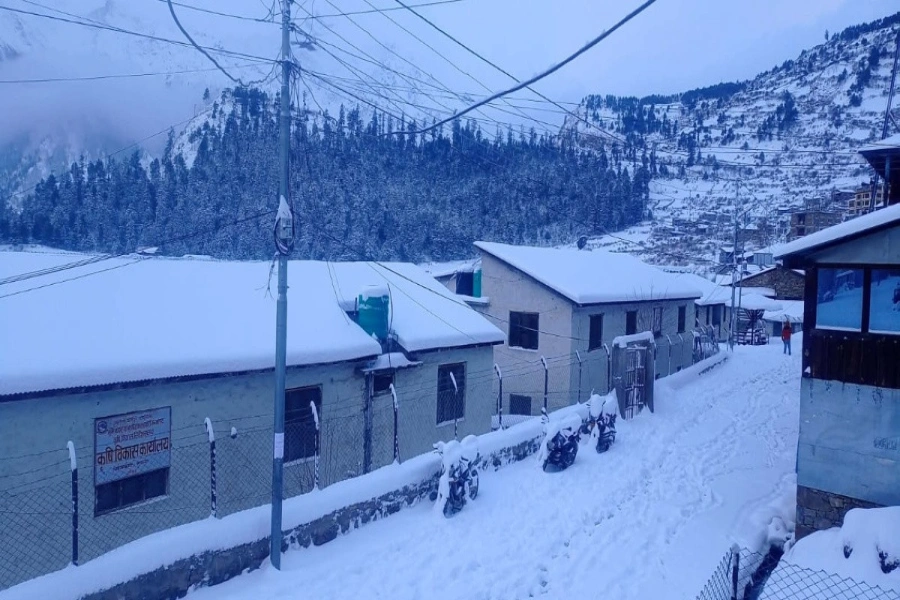In Nepal, the women's movement and women activists are often criticized or misunderstood. Many people assume that the movement is confined to urban areas and that women activists are educated, elite individuals. However, my participation in the Anupam Abhiyan in Madhya Bindu, Nawalpur, in March 2024, challenged this perception. Women from different districts arrived carrying food from their homes, eager to be part of this unique nationwide feminist campaign. They had undertaken long bus journeys, sustaining themselves with home-grown corn, sorghum, gundruk, chiura, and potato chana (Aaluka Chana). For Nepali women, every journey is distinct—not just a physical movement but a struggle between household responsibilities and the pursuit of freedom and self-respect.
The feminist journey, named ‘Anupam Bus Yatra,’ included women and men who believed in and advocated for equality. One group started from East Mechi and another from West Mahakali. Throughout their journey, they danced, laughed, sang, and engaged in discussions about feminism, stopping along the way to share their message. Organized by the Intergenerational Feminist Forum, the program brought together women of different ages, castes, ethnicities, religions, communities, identities, and professions.
The Intergenerational Feminist Forum (IGFF) is a collective founded under the leadership of Rita Thapa, the founder of Tewa and Nagarik Awaz organization. It is currently co-coordinated by Stella Tamang and Laxmi Ghalan. The forum follows a unique tradition of passing on leadership annually, fostering the development of many feminist leaders in a short span of time. While Nepal's women's movement has achieved various milestones, the Intergenerational Feminist Forum has brought a fresh wave of activism in response to the current stagnation. The movement’s primary goal is to enhance women's participation and leadership in the upcoming elections.
At the gathering in Nawalpur, rural women boldly addressed political leaders: "You fight; we will work. We will bring change with words, not bullets. If we can run households, why can’t we run the country?" Slogans such as "The country needs feminist leadership" echoed throughout the event. Alongside singing feminist songs, the participants also discussed the code of conduct that feminists should uphold. They emphasized principles like self-respect, inclusivity, intergenerational care, coexistence, co-leadership, solidarity, accountability, transparency, cooperation, tolerance, collective harmony, and non-violence as their guiding values.
Nine years on, Madhes movement has lost what it gained

‘Anupam’ Feminist Movement
Feminism is about equality and self-respect, not about conflict between men and women. The Anupam Feminist Movement has placed self-respect at the center of its campaign. Its strength lies in its grassroots focus, with women from villages spontaneously joining the movement. As perceptions of feminism evolve, the movement spreads the message that anyone who believes in and advocates for equality is a feminist. It also encourages men to join the cause, emphasizing that feminist men exist and are welcome in the movement.
Feminism is not about creating a world solely for women but about dismantling patriarchy. It is not an imported ideology from the West. On the contrary, examples of feminist resistance can be found throughout Nepal's history, including the Mahabharata era. Equality is deeply tied to justice, and supporting equality means advocating for justice. Gender justice is essential for achieving an egalitarian society.
This movement, led by feminist leader Rita Thapa, is bridging the gap between rural women and the broader feminist movement. At a time when Nepal’s feminist movement appeared to be fading, Anupam Abhiyan has reignited its flame, proving that feminism is not just an urban phenomenon but a grassroots movement deeply rooted in the villages.
The significance of the Anupam Abhiyan extends beyond just advocacy. It is about empowering women at every level of society. This movement is inspiring rural women to take leadership roles in their communities and make informed decisions about governance, development, and social justice. Women who were previously unheard now have a platform to voice their concerns, challenge discriminatory policies, and push for change at both local and national levels.
Anupam Abhiyan envisions fifty percent participation of women politicians in the upcoming elections, rallying around the slogan "Women First in 2084". Since this movement has emerged organically from villages, it is gaining momentum rapidly. Feminist leaders are emerging across generations, from young activists to middle-aged and elderly women. The Intergenerational Feminist Forum has now expanded its reach from villages to cities, with strong support from local communities.
The presence of young feminists in the movement is a positive sign for the future. Youth participation ensures the sustainability of feminist activism and maintains the movement’s dynamic and relevance. The organic women’s movement in Nepal is flourishing, climbing the ladder of success and proving that feminism is a story of both the city and the village. The Anupam Abhiyan serves as a powerful reminder that change is possible when grassroots activism meets determination and collective action. As more women from villages step into leadership roles, Nepal moves closer to an equitable society where women's voices are not just heard but actively shape the nation's future.






































